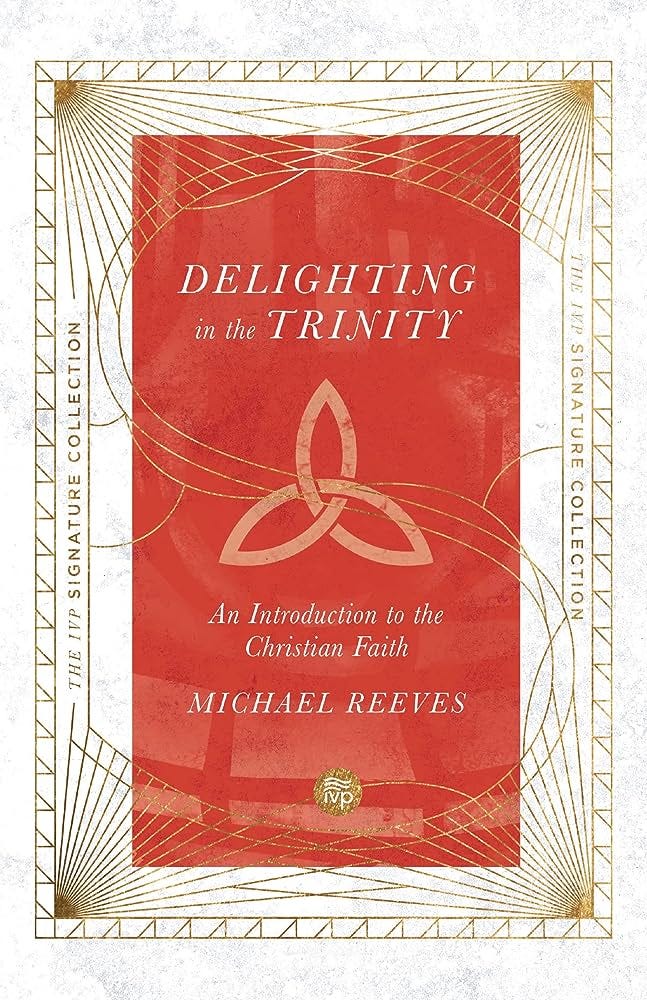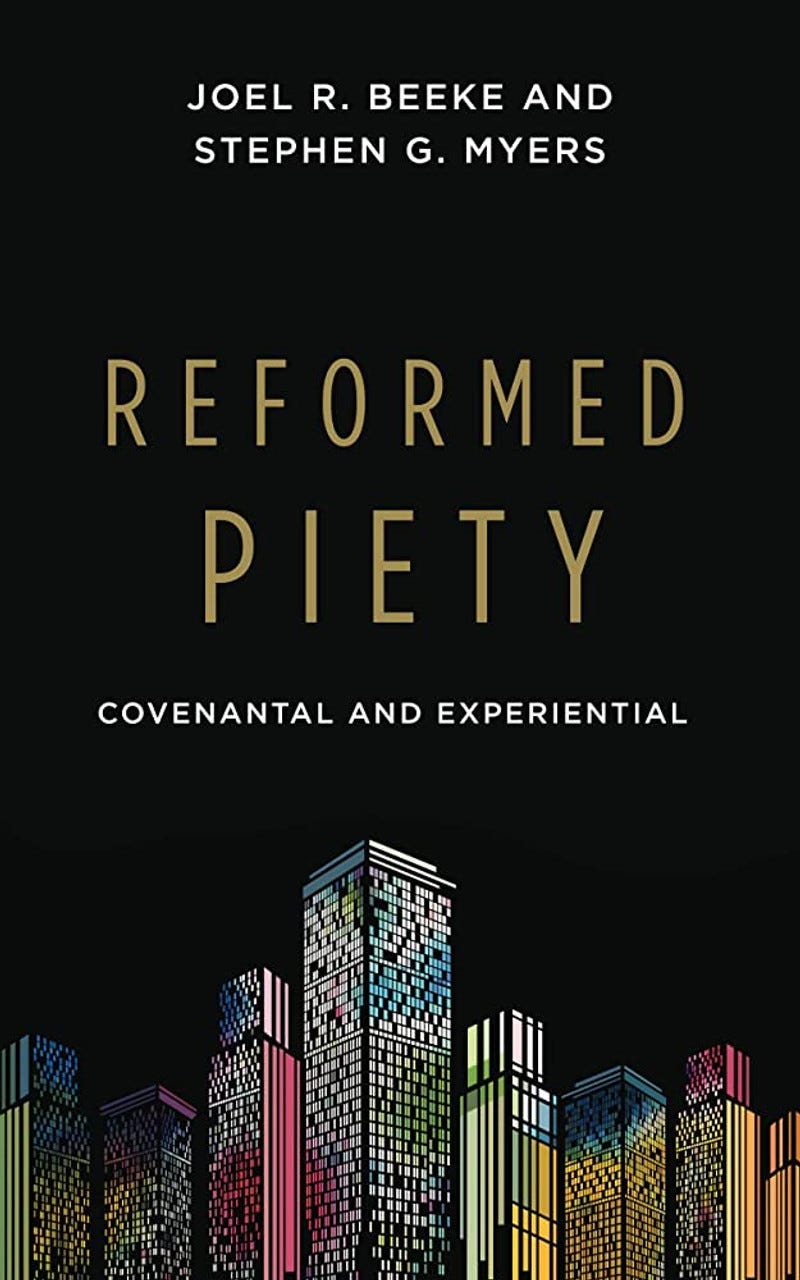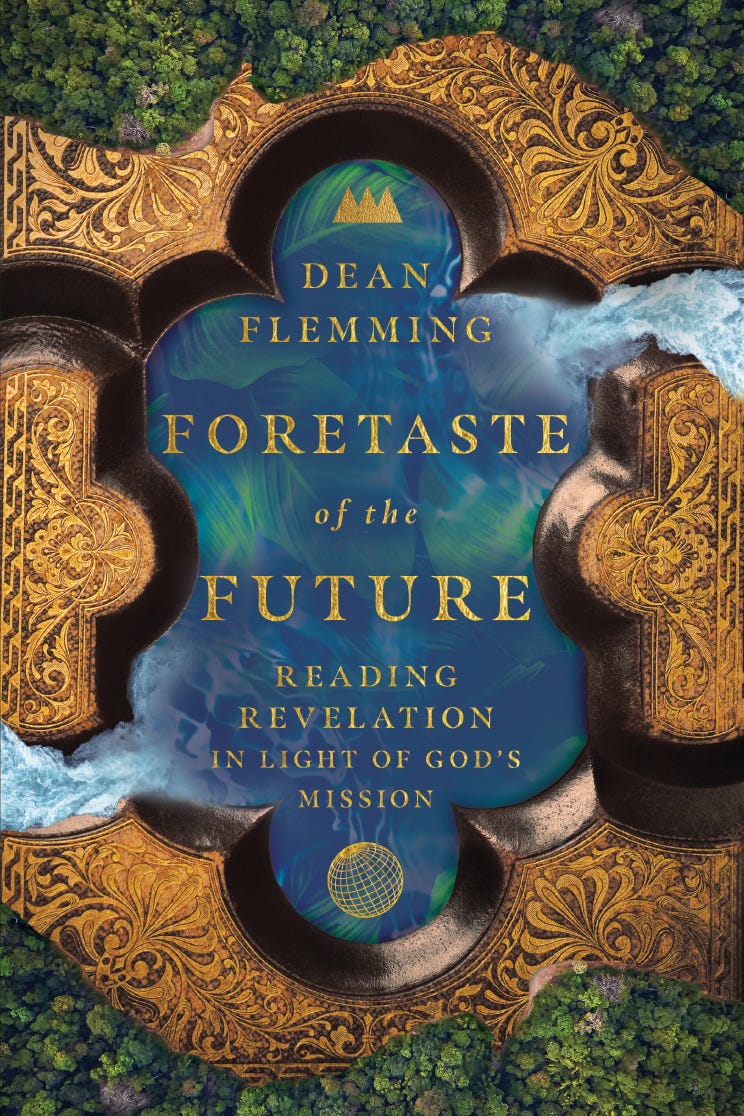Summertime Reads of 2023
While the Georgia heat has been unendingly relentless this year, we now pass from our summer vacations to the beginning of a new school year and, hopefully, the soon-yet-still distant season of Fall.
While in preparation for new classes, research papers to be grinded out, and final revisions of presentations for upcoming conferences, I take the summertime as an opportunity to read new books that otherwise I might never get the chance to open. It’s my “break” from the mundane to explore new, and sometimes old, topics and perspectives that often refresh my interests and grant me new motivations for reading.
This year I decided to read a couple of books that have been on my shelf for a long time, and now I can finally place them in the “read” section of my library.
Delighting in the Trinity by Michael Reeves
Published: 2012 | Category: Systematic Theology
If there was one approachable book I’d recommend to you on the Christian doctrine of the Trinity, it would be Michael Reeves’ book. Sometimes understanding this ancient doctrine of the historic, orthodox church can be difficult simply because we as Christians are unsure how it applies to our theological perspective and the way we live our lives.
Has it ever felt irrelevant to you?
Reeves intellectually, yet also very practically, explains why this doctrine is a distinctive Christian belief in our monotheistic tradition of faith, and helps the reader understand why the eternality of the relational, loving, and united three persons of the Godhead is important. Note the emphasis on love here. The triune nature of God is the basis of the eternal, loving character He displays towards His creation and people.
The book is geared towards understanding this doctrinal truth in very practical ways. The three persons of the Trinity, as revealed in the scriptures, carry out particular roles in the process and application of salvation in the believer’s life. The way we pray for God’s forgiveness, His flow of grace in our life, and our daily needs and support ought to be verbalized in Trinitarian form. Think of Jesus’ prayer taught to His disciples: “Our Father in Heaven…”
The simple yet rich presentation of Reeves’ work makes it easy for anyone, even those struggling to understand the orthodox Christian view of God, to grasp in a clear way why the Trinity is a distinct, vital Christian belief.
I found this book insightful and reassuring. How often do you address God in the triune language of the Scriptures? The book has challenged me to consider the ways I see the loving care and power of the Father, Son, and the Holy Spirit in my day-to-day life.
Reformed Piety: Covenantal and Experiential by Joel R. Beeke and Stephen G. Myers
Published: 2019 | Category: Practical Theology
A brief yet substantial work on Reformed pietism.
I’ve been in charismatic-like settings that emphasize a strong sense of spiritual formation with little understanding of a personal theological framework. I’ve also been in Reformed communities that sometimes de-emphasize pietistic living to a tertiary category compared to developing complex theological arguments on issues such as baptism or ecclesiology.
Where do you find yourself in these comparisons? Does the Christian life have to be a fight between personal, intellectual theological beliefs and a faithful expression of practical devotion and godliness?
Short answer is no. In fact, I think Joel Beeke and Stephen Myers argue well that true spiritual formation comes through pietistic living that derives from a deeply understood and inwardly meditated theology of the Scriptures.
Beeke and Myers say, “Knowing who and what God is (theology) informs and leads to right attitudes toward Him and produces right conduct, or doing what pleases Him (piety)” (pg. 2).
The Reformed view of piety emphasizes the role of God’s Word in the life and devotion of the saints, and living in obedience to the Scriptures brings about true joy and peace in Christ. These authors show that living out the Law of God has a place in the Christian life for those who dwell, partake, and flourish in God’s grace, for without it there would be no hope.
A heart that experiences the indwelling Spirit of God finds happiness and satisfaction according to His mandates because mercy triumphs over judgement. His Word brings comfort in our failures, not despair. We have peace in the blood of Christ and power in His resurrection to live holy, righteous, and just lives for the glory of God.
Foretaste of the Future: Reading Revelation in Light of God’s Mission by Dean Flemming
Published: 2022 | Category: Biblical Theology
When was the last time you read the book of Revelation in the Bible?
Many, if not most, Christians struggle to make sense of the figurative language and odd imagery of the book, and decide that it must not be important for the modern readers of the twenty-first century. Is this so?
Dean Flemming disagrees. Rather than a scary book focused on Black Hawk helicopters, microchips as the mark of the beast, and the complete destruction of the Christian church against unstoppable demonic forces, Revelation is a vision of hope, triumph, and the reign and mission of Christ throughout church history.
I’ll let Flemming speak for himself: “Revelation is not about scripting future events but revealing God’s great purpose to redeem and restore the whole creation, including people, through the mission of the slain Lamb. At the same time, Revelation seeks to shape and equip Christian communities to participate in God’s saving purpose by living as a foretaste of God’s coming new creation now, through their lips and through their lives” (pg. 3).
John’s vision was not only for those in the first-century church or some Christians in a future period in history but for every Christ-centered community in every century of this Church age. Revelation displays the sovereignty of Christ over the saints and their struggles in this world and reveals how their unwavering triumph through suffering leads to their conquering over Satan’s demonic forces and the evil institutions of this world.
Flemming’s book is not a commentary in the traditional sense. It follows the theme of God’s mission throughout Revelation, and not in literary order. I consider it more of a biblical (narrative) theology approach. This is a great book for learning how to reorient your thinking on Revelation and its purpose for the modern church.
I personally think his thematic-approach to reading Revelation is perfect for anyone who wants to read Revelation from an idealistic approach (in distinction to preterist or futurist views) for the first time. Like any good primer resource, Foretaste of the Future is not overly complicated in its evaluation of the scriptures and gives helpful conclusions in thinking about Revelation’s message for us today.
Granted, Revelation is not the easiest book to read, so I would recommend a good commentary to help you explore each specific chapter as well (see G.K. Beale’s Shorter Commentary on Revelation).





